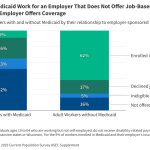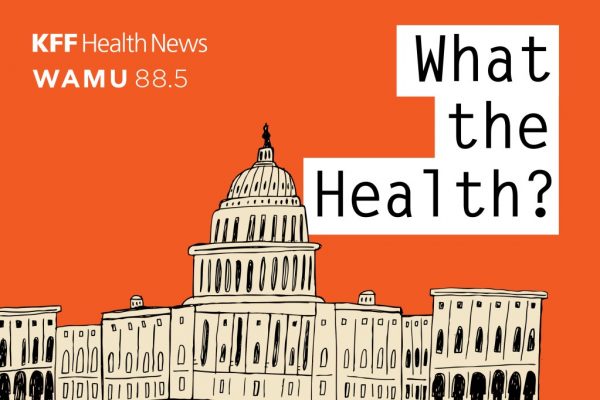
AI Startups Are Tying Fees to Completed Tasks. Will Hospitals Buy In?
Healthcare AI startups are experimenting with pricing models that tie their costs to real-world results,…

Healthcare AI startups are experimenting with pricing models that tie their costs to real-world results, such as completed tasks or improved patient outcomes. While investors see this as a way to prove value, many hospitals remain skeptical, preferring predictable pricing. The post AI Startups Are Tying Fees to Completed Tasks. Will Hospitals Buy In? appeared…

Most adult Medicaid enrollees who will be subject to new work requirements are already working but rely on Medicaid because their employers do not offer health coverage or they are not eligible for the coverage offered at their job. This analysis examines the availability of job-based insurance in 2024 for adult Medicaid workers ages 19…

The Host Julie Rovner KFF Health News @jrovner @julierovner.bsky.social Read Julie’s stories. Julie Rovner is chief Washington correspondent and host of KFF Health News’ weekly health policy news podcast, “What the Health?” A noted expert on health policy issues, Julie is the author of the critically praised reference book “Health Care Politics and Policy A…

The Series B extension brings Atavistik Bio’s Series B financing to $160 million. The startup’s lead program is in development for hereditary hemorrhagic telangiectasia (HHT), an inherited bleeding disorder. The post Startup Atavistik Adds $40M for Clinical Trial in Rare Bleeding Disorder With No Approved Therapies appeared first on MedCity News.
![How to Build Effective Referral Networks and Improve Patient Navigation [Video]](https://medical-article.com/wp-content/uploads/2026/03/BROLL.00_00_06_04.Still005-1024x576-0qvUuu-600x400.png)
[Sponsored] Healthcare executives spoke with MedCity News on how their businesses are using tech to shape the clinician and patient experience. The post How to Build Effective Referral Networks and Improve Patient Navigation [Video] appeared first on MedCity News.
This content is password-protected. To view it, please enter the password below. Password: The post Protected: Myth vs. Fact: The Operational Realities Shaping Sterile Processing Performance appeared first on Crothall Healthcare.

The move toward infusion centers as the preferred site of care is not a short-term response. It aligns with broader industry trends, including specialty drug pipelines that continue to favor infused biologics and a sustained rise in infusion demand. The post Why Hospital Outpatient Isn’t the Default for Long-Term Infusion Anymore appeared first on MedCity…

The settlement demonstrates that enforcement risk is real and substantial, but it also highlights an opportunity. Medicare Advantage oversight does not require years of new rulemaking or experimental pilots because the technical capability to validate documentation at scale already exists and can be deployed today. The post The Kaiser Settlement Should End the Guesswork in…

[Sponsored] A new eBook published by MedCity News for PurpleLab highlights how RWD and SDOH can lead to more inclusive clinical trials and drugs that improve the quality of life for larger, diverse patient populations not only for NSCLC, but other conditions as well. The post Using Real World Data from the Patient Experience to…

MINNEAPOLIS — Gabi has big brown eyes, pigtails, and a genetic condition that makes her bones brittle. They fracture easily, leaving the 2-year-old in such pain that her mother quit her job cleaning offices to stay home and cradle her in the one-bedroom apartment they share with six relatives. When federal immigration agents descended on…